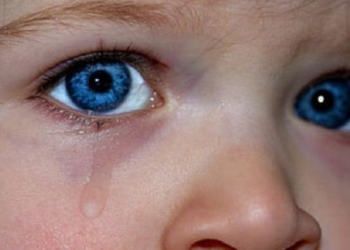
Normally, people live their lives based on five senses: sight, hearing, smell, touch, and taste. Each experience is often triggered by one of these senses, and it has become an integral part of daily living. It can be argued as to which of these bears more importance, but, it cannot be disregarded that care should be maintained to keep healthy, starting with the sense of sight.
Over time, a person’s eyesight may degrade naturally. Genetics plays a huge part in determining the health probability of one’s vision, although there are everyday activities that can cause eye problems.
Here are some of them:
1) Working Too Long with a Computer
 Computer monitors follow a certain standard of brightness and contrast. Unfortunately, most of it emits blue light, and experts have agreed about the possibilities of harmful effects on a person’s vision.
Computer monitors follow a certain standard of brightness and contrast. Unfortunately, most of it emits blue light, and experts have agreed about the possibilities of harmful effects on a person’s vision.
Firmoo has computer glasses built specifically to block blue light. Some of the impacts that may happen from prolonged blue light exposure are:
- Eye strain
- Cataracts
- Vision Impairment
The sun is a primary source of blue light; thus this kind of light is everywhere. The difference is that people do not stare at the sun or any naturally lit object for too long, unlike the amount of time an average person spends at a computer.
2) Low-light Reading
Have you ever had a childhood experience wherein your parents asked you to go to sleep, but you end up covered in a blanket, flashlight in hand and continue reading your favorite book? This is never good for the eyes as it causes eye strain.
The effects are also similar when reading at low light. An individual’s pupils dilate or constrict depending on the amount of light available. Low light forces the pupils to remain open wider than normal to let more light in. The strain doesn’t just affect the eyes, but it also affects the brain, since the brain tries to interpret what the eyes are reading.
3) Prolonged Use of Mobile Devices
Today’s mobile devices are smarter and more versatile compared to its older counterparts. It’s not about texting and calling anymore; there’s also work, social media, and entertainment that can be done on mobile devices.
Though such devices may have smaller screens compared to computers, the radiation, and blue light effects can still cause:
- Eye Strain
- Vision Problems
- Erratic Sleep Patterns
One way to reduce the effects of eye strain is to wear special screen glasses that are designed to block the blue light emitted by screens. Blue light can be particularly disruptive to the body’s natural melatonin production, the hormone associated with sleep, so wearing blue light glasses is recommended if you look at screens in the evening.
There’s also the distance factor, wherein such gadgets are in proximity to the eyes most of the time compared to monitors. Aside from these, mobile devices can also cause neck strain especially when people keep looking down on their smartphones.
4) Watching Shows in the Dark
Televisions and movie screens are not as harmful as people may think. It’s how these things are used that can cause damage to a person.
There are three “misuses” for these devices:
- Watching too close to the screen.
- Watching in the dark.
- Binge watching in the dark.
It is recommended to at least maintain a distance from your television that is equal to twice the measurement of your screen’s size. For example, if your television screen is 42 inches, you should be watching from about 7 feet away.
Dark rooms give that cinema vibe when watching movies. It is fine for watching a single film, but it is not recommended for prolonged or multiple movie-watching. Since your pupils will continuously adjust to what you see on the screen, it will have little to no rest throughout the entire movie.
Have some ambient lighting when you are watching at home and do give your eyes a few minutes to rest in between shows or episodes.
5) Lack of Sleep
Sleep is the body’s way of recuperating. It is never enough to just rest for a few minutes especially when the body is craving hours of good sleep. Staying up late or being contented with three hours of sleep every day won’t cut it.
Sleep deprivation will lead to:
- Dulled senses
- Unfocused vision
- Lower immune system
Such effects can lead to various illnesses, more so when stress is involved. This is the reason why doctors would often recommend at least six hours of sleep daily for the average adult.
Parting Tips for your Eyes
There are different ways that you can do to protect your eyes or keep them as healthy as possible. It starts with understanding your genetics since some eye problems are hereditary.
After this, you can:
- Maintain a healthy diet of food rich in nutrients, particularly vitamin A.
- Get a good night’s sleep, about six to eight hours.
- Rest your eyes now and then from screen glare.
- Don’t use your mobile devices a few minutes before sleeping.
- Wear protective glasses from blue light and sunlight.
- Do not immediately go out from a dark room into a well-lit room. Give your eyes time to adjust to the changing light situations slowly.
- Consult an eye doctor if you feel something is not right with your vision.
The eyes may be the windows to the soul, but they have practical functions that help with daily living. Never take them for granted and always prioritize your health and well-being over material things.














